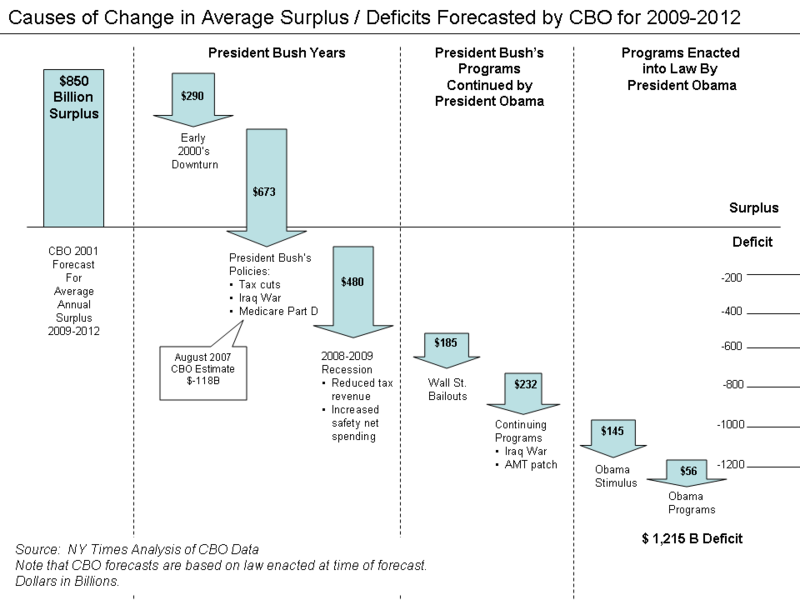@Cycloptichorn,
Cycloptichorn wrote:Which you are correct, I didn't respond to, for which I apologize. But I'll pick up the argument from here: even counting all the cuts you wanted to make, and counting GENEROUS amounts of money saved by those cuts, you still couldn't close the deficit. Let alone pay off the yearly 100 billion in interest on the debt! So when I argue that you cannot balance the budget by cutting spending alone, I don't see anything in your counter-argument that proves me wrong, because the things you listed simply wouldn't balance the budget.
There was about 25-30% of the deficit unaccounted for by your proposed cuts. To which you said, 'I'll cut other places until that amount is cut as well.' Which is fine and dandy, but it's not all that specific.
Neither is your "just cut 10% across the board" plan. Where do you get more specific than I have? You demand specificity that you don't bother with yourself and then claim you are the only one doing the research.
In any case, you are leaving out that I also said that I expect economic growth to eliminate some of the deficit through additional tax revenue. In 2009 the tax revenue was about 20% less than 2007[
1] (and this is about a third of the deficit right there) but this is projected to be higher than 2007 levels in 2012. You are ignoring that a big part of this (the New York Times estimated that 37% of our 2 trillion swing is attributable to the economic downturns in 2001 and 2007[
2]) can be alleviated by the economy rebounding like most agree it will.
The truth is that unless we simply never rebound that economic growth will more that make up for the 25-30% of the deficit that I have not specifically cut and I think there is at
least 5% worth of cuts to be made there (note that according to your 10% plan there would be 2.5-3% from the remainder to cut, just in case you instinctively call that outlandish).
Here is a simple graph of the surplus to deficit swing based on the, it is very clear that the economic downturn is responsible a significant amount of the deficit that I did not cut and I think it is not unreasonable to assume that economic growth will replace a lot of the lost tax revenue.

I think that the big cuts I specified along with the economic growth that everyone expects, as well as remaining cuts in other government programs (I only did not even address 10) brings us pretty close. What
specific qualms do you have with my projection? Where are the
specific deficits you see in it?
Quote:They are also political fantasies. I agree that it's possible to envision a world in which things were completely different than they are today, and that we wouldn't have any debt in that world. But we live in this one. And in this world, we're not cutting defense by 75% and axing homeland security completely. We're not going to transform into a single-payer or socialized health system and we certainly aren't going to get rid of SS (not that it would save any money off the deficit at all).
I am arguing for my ideal, not what is popular in the US. And we already went over this months ago so I'll just repost what I said then:
"It's not going to happen because people don't want it to. But that doesn't make it a bad idea, just an unpopular one. It's not going to happen because people like you prefer to raise taxes and because people like your political opponents prefer to cut social programs and increase military spending."
And...
"I have a pretty good idea of how much political capital what I propose would cost, but these problems should be addressed in two ways: what is the ideal? and what is viable?
I'm talking about ideal conditions (to me, of course) and in practice it would be very painful to achieve (the easiest way is the Republican strategy of "starving the beast" or bankrupting the country into smaller government but I find that too dishonest a strategy for my tastes)."
I am not an ideologue who refuses to agree that there is a way other than mine to do this, I completely agree that your program can work. Where our disagreement lies is in your insistence that yours is the only possible way. You have never substantiated that claim with any specificity.

